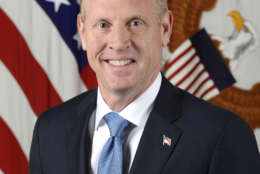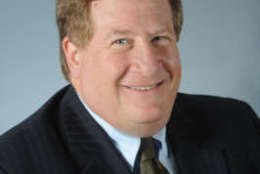On DoD
-
The Defense Department's review of its current personnel authorities is late, but House lawmakers say they're still some recruitment and retention challenges they want to tackle in next year's authorization act.
April 25, 2018 -
Rep. Mac Thornberry's (R-Texas) plan to cut seven DoD agencies would affect some 200,000 civilian employees, but it would also affect quite a few contractors too.
April 25, 2018 -
Deputy Defense Secretary Patrick Shanahan says there has been a lot of misconceptions about the JEDI contract.
April 24, 2018 -
Dan Gettinger of the Center for the Study of the Drone at Bard College said DoD wants to ramp up its acquisition of unmanned technology compared to previous years.
April 24, 2018 -
The director of the Office of Personnel Management said he wants to restore the importance of the Chief Human Capital Officers Council. Jeff Pon has asked agency and department heads to put very senior level representatives on the council that strategizes human resource policy for government employees.
April 24, 2018 -
About 20,000 new opt-ins to the blended retirement system aren't taking full advantage of the Thrift Savings Plan and its benefits.
April 23, 2018 -
While there was a lot of talk about reform, it may take longer than some expected to overhaul the military personnel system.
April 23, 2018 -
The Air Force 1st Special Operations Wing is handing out waivers to enlisted airmen who finished their training, but are waiting the mandatory year to promote.
April 23, 2018 -
The Air Force is taking into consideration new recommendations from the RAND Corporation.
April 23, 2018 -
Former VA chief information officer Scott Blackburn, just one week after announcing his immediate resignation, says the agency's ambitious move to the same electronic health record system as the Defense Defense Department is still moving forward, despite a shakeup in leadership.
April 23, 2018 -
Defense agency reorganizations in a bill from Rep. Mac Thornberry (R-Texas) are major concerns for federal contractors.
April 23, 2018 -
Military officers needs explicit permission from Congress to transition from part-time reservist to full-time active duty, but Air Force secretary Heather Wilson said that hinders retention.
April 23, 2018 -
The U.S. military is employing a mixture of procurement contracts and innovative practices to speed up the acquisition of defensive and offensive cyber technology.
April 23, 2018 -
The second draft RFP, answers to questions and the cover memo raise more questions regarding the Defense Department's justification for a single award strategy.
April 20, 2018 -
After receiving one thousand comments on the first one, the Defense Department decided to use the same strategy for its second RFP.
April 20, 2018















